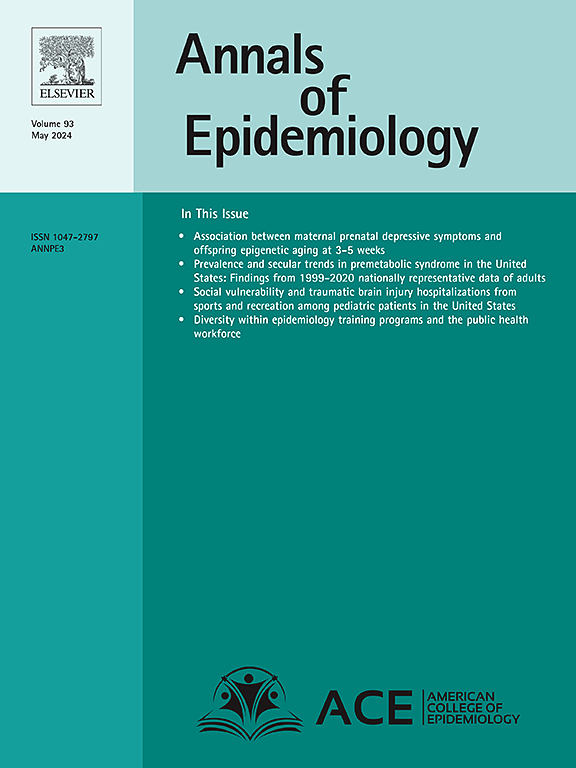LGBT身份在心理健康中的预测能力:一项变量重要性分析。
IF 3
3区 医学
Q1 PUBLIC, ENVIRONMENTAL & OCCUPATIONAL HEALTH
引用次数: 0
摘要
目的:评估2014年至2023年间女同性恋、男同性恋、双性恋和跨性别(LGBT)身份对心理健康结果的预测重要性变化。方法:利用行为风险因素监测系统(BRFSS)的数据,采用随机森林和梯度增强两种综合方法以及传统的logistic回归,分析包括LGBT身份在内的各种因素对频繁精神困扰的预测能力。频繁精神困扰被定义为在过去30天内经历14天或更长时间的精神健康状况不佳。结果:我们的分析显示,在所有三种建模方法中,LGBT身份对频繁精神困扰的预测重要性显著且一致地增加。具体来说,根据不同的模型,LGBT地位从2014年的第8或第13位上升到2023年的第3或第5位。这一趋势表明,近年来SOGI已成为预测心理健康挑战最具影响力的因素之一。结论:这些发现突出了性取向和性别认同(SOGI)作为心理健康挑战的风险因素的重要性。本文章由计算机程序翻译,如有差异,请以英文原文为准。
The rising predictive power of LGBT identity in mental health: An analysis of variable importance
Purpose
To assess the changing predictive importance of lesbian, gay, bisexual, and transgender (LGBT) status on mental health outcomes between 2014 and 2023.
Methods
We utilized data from the Behavioral Risk Factor Surveillance System (BRFSS) and employed two ensemble methods—random forests and gradient boosting—as well as traditional logistic regression, to analyze the predictive power of various factors, including LGBT status, on frequent mental distress. Frequent mental distress was defined as experiencing poor mental health for 14 or more days during the previous 30 days.
Results
Our analysis revealed a significant and consistent increase in the predictive importance of LGBT status on frequent mental distress across all three modeling approaches. Specifically, LGBT status consistently rose from the 8th or 13th most important predictor in 2014 to the 3rd or 5th most important in 2023, depending on the model. This trend demonstrates that SOGI has become one of the most influential factors for predicting mental health challenges in recent years.
Conclusions
These findings highlight the growing importance of sexual orientation and gender identity (SOGI) as a risk factor for mental health challenges.
求助全文
通过发布文献求助,成功后即可免费获取论文全文。
去求助
来源期刊

Annals of Epidemiology
医学-公共卫生、环境卫生与职业卫生
CiteScore
7.40
自引率
1.80%
发文量
207
审稿时长
59 days
期刊介绍:
The journal emphasizes the application of epidemiologic methods to issues that affect the distribution and determinants of human illness in diverse contexts. Its primary focus is on chronic and acute conditions of diverse etiologies and of major importance to clinical medicine, public health, and health care delivery.
 求助内容:
求助内容: 应助结果提醒方式:
应助结果提醒方式:


